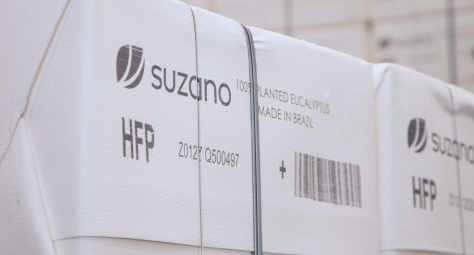sobre o que você deseja falar?


perguntas, sugestões ou problemas técnicos envolvendo a plataforma

informações sobre a empresa


Suzano manages the fight against corruption by implementing and promoting initiatives from its Compliance Program.
The program is designed based on the best market practices, has the support of senior management, and is structured around three key pillars: prevention, detection, and response. This framework leads to eight essential elements of action:
The program's primary goals are to identify, treat, and mitigate potential risks associated with the company's various activities and to strengthen a culture of integrity. Suzano has established a dedicated area to manage and develop the Program, equipped with its resources and committed to its ongoing dissemination and evolution.
Regarding the fight against corruption, the internal documents that deal with this issue are:
The documents establish the anti-corruption guidelines that all employees must follow in their daily activities and relationships with business partners.
The SOx external audit, carried out by PwC, involves assessing compliance controls to ensure these policies are regularly reviewed. This process is an integral part of the external audit, emphasizing the importance of following established guidelines and maintaining compliance with regulatory and corporate governance standards.
The Anti-Corruption Policy and the Manual for Relations with Public Agents were updated in 2023. The Anti-Corruption Policy explicitly prohibits bribery and outlines clear guidelines for interacting with public agents, ensuring transparency and adherence to anti-corruption standards. Additionally, the policy defines bribery and corruption, prohibits facilitation payments, and clarifies acceptable behavior in professional interactions.
The document also explicitly addresses fraud and money laundering, establishing mechanisms for preventing, detecting, and responding to these risks.
The company maintains a strict zero-tolerance policy regarding bribery. We do not permit any actions that could be considered corrupt, including bribery, private corruption, harmful acts against public administration, and any other illicit activities in our dealings with public or private agents. This policy reinforces our commitment to integrity, business ethics, and adherence to the highest regulatory and corporate governance standards.
The Socio-Environmental Investment and Donations Policy outlines the process and approval levels for donations, sponsorships, and partnerships. It also defines the roles and responsibilities of the departments involved in these requests. The Compliance department must review each request, which will provide an appropriate opinion on the matter.
As a starting point, potential risks related to corruption are mapped into four different categories, both in our operations and at the corporate level, to mitigate possible misconduct throughout the company. The risk categories are:
Risks are evaluated and ranked based on two criteria: the likelihood of their occurrence (which can be classified as remote, possible, probable, or very probable) and their potential impact (categorized as minor, moderate, major, or extreme). To manage these risks, action plans are developed in collaboration with the relevant departments responsible for addressing each risk.
In 2022, we published the Conflict of Interest Policy, which provides clear and objective guidelines for identifying and managing potential conflicts of interest. Additionally, under the Training and Communication pillar, we emphasize that all communications regarding compliance are sent to every employee, including leadership.
Anti-corruption training is available to employees through our internal training platform, UniverSuzano, and participation is mandatory. New employees are required to complete this training within 30 days of their hire date. Additionally, the training content is updated every two years, after which employees must retake the course.
Training is also provided on specific and customized topics for Suzano's sensitive areas, i.e., those with the highest possible exposure to the company.
We have enhanced the background check process for our business partners by implementing a formal risk rule to assess the risks associated with contracts. Additionally, we have standardized our recommendations and improved integration between the support and request areas. These changes enable the company to make more informed decisions.
Lastly, Suzano provides a confidential and independent reporting channel for employees and the general public. This channel allows individuals to report any situations that may violate the Code of Ethics and Conduct, company policies, or applicable laws in the regions where the company operates. All reports are investigated impartially to verify accuracy and determine the appropriate actions. It is important to note that retaliation against whistleblowers is strictly prohibited and will not be tolerated.
The following table refers to the corruption cases identified at Suzano.
| 2020 | 2021 | 2022 | 2023 | 2024³ | |
|---|---|---|---|---|---|
| overall number | overall number | overall number | overall number | overall number | |
|
Confirmed corruption cases |
15 |
15 |
17 |
21 |
61 |
|
Confirmed cases in which employees were dismissed or received disciplinary measures for corruption |
10 |
8 |
16 |
11 |
24 |
|
Confirmed cases in which contracts with business partners were terminated or not renewed as a result of corruption-related violations |
3 |
4 |
1 |
2 |
8 |